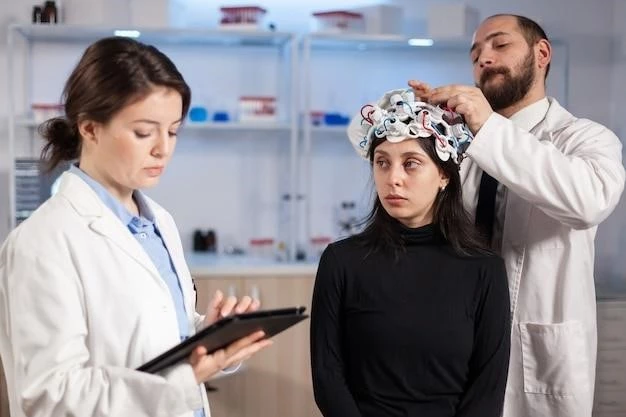Causes of Aseptic Meningitis
Viral Infections
Viral infections like enteroviruses, herpes simplex, and West Nile virus are common causes of aseptic meningitis. These viruses can lead to inflammation of the meninges, the protective membranes covering the brain and spinal cord. It’s essential to practice good hygiene and follow preventive measures to reduce the risk of viral infections that may trigger aseptic meningitis.
Non-infectious Causes
Aseptic meningitis can also be caused by non-infectious factors such as autoimmune disorders, certain medications, chemical agents, and some cancers. It’s crucial to consult with a healthcare professional for proper diagnosis and management if non-infectious causes are suspected. Avoiding triggers and maintaining a healthy lifestyle can help reduce the risk of non-infectious aseptic meningitis.
Symptoms and Diagnosis of Aseptic Meningitis
Common Symptoms
Common symptoms of aseptic meningitis include headache, fever, neck stiffness, sensitivity to light, and fatigue. It’s important to seek medical attention if you experience these symptoms, as prompt diagnosis and treatment are crucial for a favorable outcome. Keep track of your symptoms and communicate effectively with healthcare providers for accurate diagnosis and management.
Diagnostic Procedures
Diagnostic procedures for aseptic meningitis may include physical examinations, blood tests, imaging studies like CT scans or MRIs, and a lumbar puncture to analyze cerebrospinal fluid. These tests help healthcare providers confirm the diagnosis, determine the underlying cause, and tailor treatment accordingly. Cooperate with your medical team and follow their recommendations for a thorough evaluation and accurate diagnosis;
Treatment Options for Aseptic Meningitis
Supportive Care
Supportive care for aseptic meningitis focuses on managing symptoms such as pain and fever. Adequate rest, hydration, and over-the-counter pain relievers can help alleviate discomfort. Consult healthcare professionals for guidance on symptom management and follow their recommendations closely. Monitor symptoms and seek medical help if they worsen or new symptoms develop.
Medications
Medications for aseptic meningitis may include antivirals, pain relievers, anti-inflammatory drugs, and corticosteroids to reduce inflammation and manage symptoms. It is important to take medications as prescribed by healthcare providers and follow up regularly to monitor progress. Report any side effects or concerns to your healthcare team promptly for appropriate adjustments in treatment.
Preventive Measures for Aseptic Meningitis
Hygiene Practices
Hygiene practices play a key role in preventing aseptic meningitis. Wash hands frequently, avoid close contact with sick individuals, and maintain cleanliness in surroundings. Practicing good hygiene can reduce the risk of viral infections and other factors that may lead to aseptic meningitis. Stay informed about preventive measures and incorporate healthy habits into your daily routine to safeguard your health.
Vaccination
Vaccination is a crucial preventive measure against aseptic meningitis. Ensure you and your family members are up to date on recommended vaccines, including those for measles, mumps, rubella, and varicella. Vaccines help protect against various viral infections that can trigger aseptic meningitis. Consult healthcare providers to understand the appropriate vaccination schedule and maintain immunity to reduce the risk of developing the condition.
Aseptic Meningitis in Children
Unique Symptoms in Children
Children with aseptic meningitis may show unique symptoms like irritability, poor feeding, vomiting, and a bulging fontanelle. It’s crucial for parents to be aware of these signs and seek prompt medical attention if any are observed. Early detection and treatment are vital in managing aseptic meningitis in children. Regularly monitor your child’s health and consult healthcare providers for guidance on caring for a child with suspected meningitis.
Treatment Considerations for Pediatric Cases
When treating aseptic meningitis in children, healthcare providers may adjust medication dosages based on the child’s age and weight. Supportive care is crucial, including managing hydration and nutrition. Parents should closely follow medical advice, ensure proper rest for the child, and monitor for any changes in symptoms. Early intervention and attentive care contribute to better outcomes in pediatric cases of aseptic meningitis.
Aseptic Meningitis vs. Viral Meningitis
Key Differences in Etiology and Pathogenesis
Aseptic meningitis is often caused by non-infectious factors like autoimmune diseases, while viral meningitis results from specific viral infections. The etiology and pathogenesis differ, impacting treatment approaches. Consulting healthcare providers for accurate diagnosis and tailored management is essential. Understanding these distinctions helps in determining the most appropriate interventions for a positive outcome.
Distinguishing Clinical Features
The clinical features of aseptic meningitis may manifest differently from viral meningitis. Aseptic cases often have a more gradual onset and milder symptoms compared to the more acute and severe presentation of viral meningitis. Understanding these distinctions can aid healthcare providers in making an accurate diagnosis and implementing appropriate treatment strategies tailored to the specific type of meningitis.
Complications of Aseptic Meningitis
Neurological Complications
Neurological complications of aseptic meningitis can include seizures, cognitive issues, and cranial nerve problems. Prompt medical attention is necessary if these complications arise. Close monitoring and appropriate interventions by healthcare professionals can help manage and minimize the impact of neurological issues. Follow-up care and rehabilitation may be needed to address any long-term effects on neurological function.
Long-Term Effects
Long-term effects of aseptic meningitis can vary but may include persistent headaches, memory problems, and fatigue. It’s crucial to follow up with healthcare providers to monitor and address any lasting symptoms. Engaging in suitable therapies and lifestyle adjustments as recommended can aid in managing and improving long-term effects; Stay informed about potential outcomes and collaborate with healthcare professionals for comprehensive care.

Recovery and Prognosis of Aseptic Meningitis
Factors Affecting Recovery
Several factors can impact the recovery from aseptic meningitis, including age, overall health, prompt treatment, and any underlying conditions. Following healthcare recommendations, getting adequate rest, and maintaining a healthy lifestyle can support recovery. Regular medical follow-ups and adherence to post-illness guidance can help optimize the recovery process. Stay proactive in your recovery journey to achieve the best possible outcomes.
Prognosis in Different Age Groups
The prognosis of aseptic meningitis varies by age group. While most cases resolve without long-term issues, the elderly and infants are at higher risk of complications. Close monitoring of symptoms, adherence to treatment plans, and seeking timely medical care are crucial for a positive prognosis. Collaborate with healthcare providers to understand the prognosis specific to the age group affected and follow recommended care guidelines diligently for optimal recovery.
